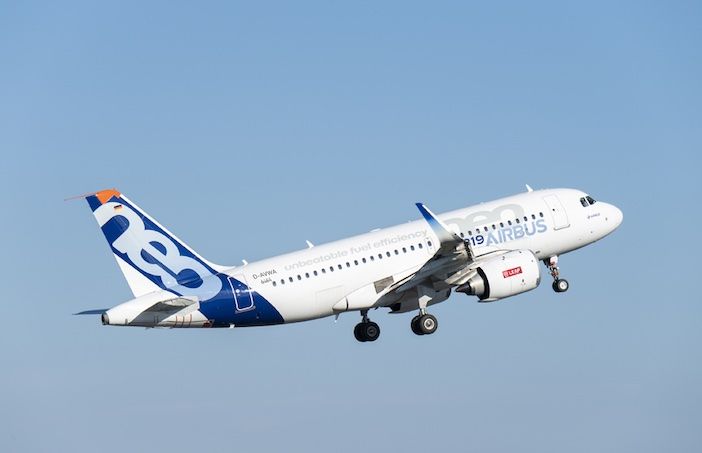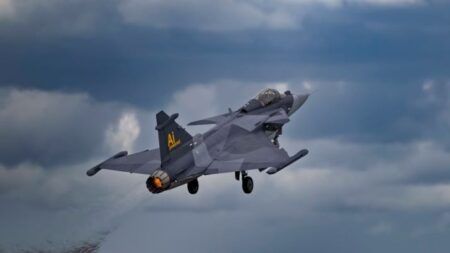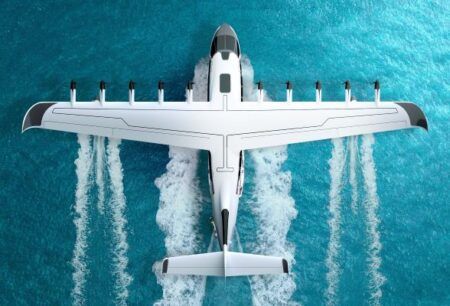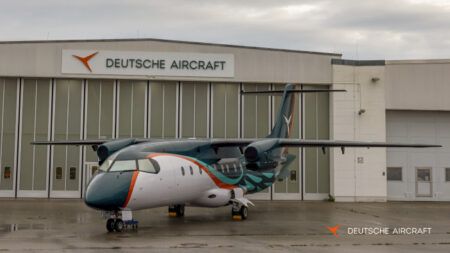An A319neo has made its first test flight with 100% sustainable aviation fuel (SAF) as part of the first in-flight study of a single-aisle aircraft running off the fuel.
During the flight test over the Toulouse region on 28 October, one CFM LEAP-1A engine of the Airbus A319neo operated on 100% SAF. Initial results from the ground and flight tests for the VOLCAN (VOL avec Carburants Alternatifs Nouveaux) study are expected next year.
The unblended SAF for VOLCAN is being provided by Total Energies. It is made from hydroprocessed esters and fatty acids (HEFA), which primarily consists of used cooking oil, as well as other waste fats. HEFA is made of paraffinic hydrocarbons and is free of aromatics and sulfur.
Around 57 tonnes of the SAF, which is produced in Le Havre, France will be used during the entire test campaign. The same fuel will also be used in compatibility and engine operability studies on the Safran Helicopters Arrano engine next year, the engine which is used on the Airbus Helicopters H160.
Airbus is working with DLR to characterize and analyze the impact of 100% SAF on ground and in-flight emissions. Another partner in the project Safran, which is focusing on compatibility studies related to the fuel system and engine adaptation for commercial and helicopter aircraft and their optimisation for various types of 100% SAF fuels. The company is to perform LEAP engine ground tests with 100% SAF at its Villaroche facilities in France later this year to complete the analysis.
French aerospace research agency Onera is also supporting Airbus and Safran in analyzing the compatibility of the fuel with aircraft systems and will be in charge of preparing, analyzing and interpreting test results on emissions and contrail formation. Dassault Aviation is contributing to the material and equipment compatibility studies and verifying 100% SAF biocontamination susceptibility.
VOLCAN’s ultimate goal is to promote the large-scale deployment and use of SAF, and certification of 100% SAF for use in single-aisle commercial aircraft and the new generation of business jets.





